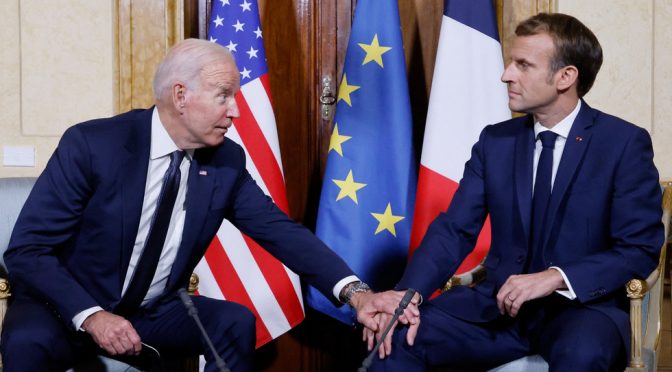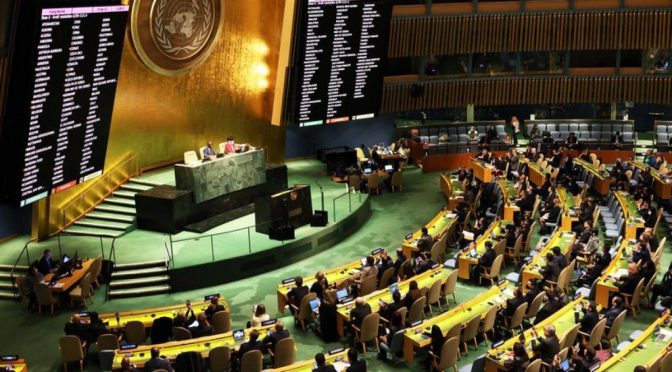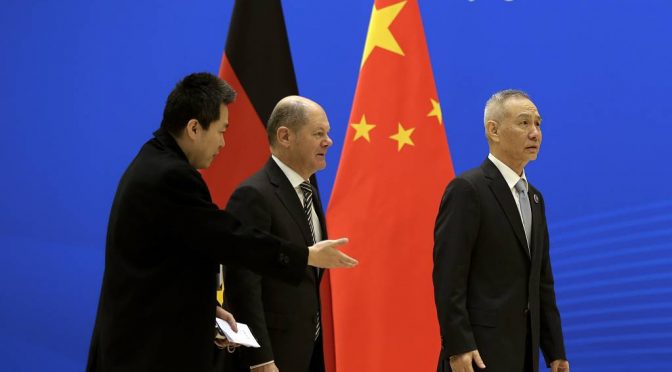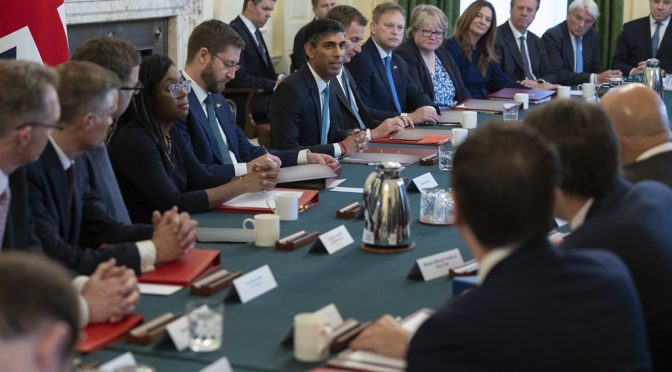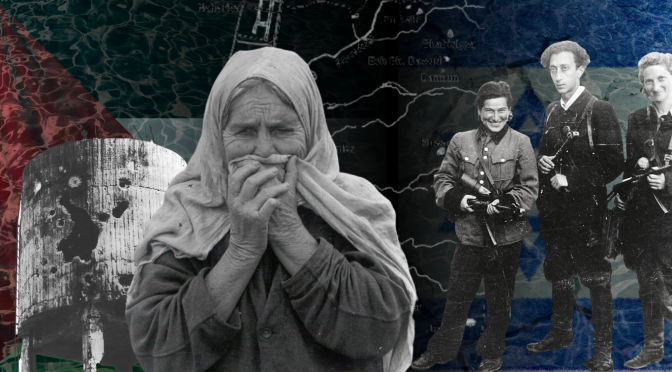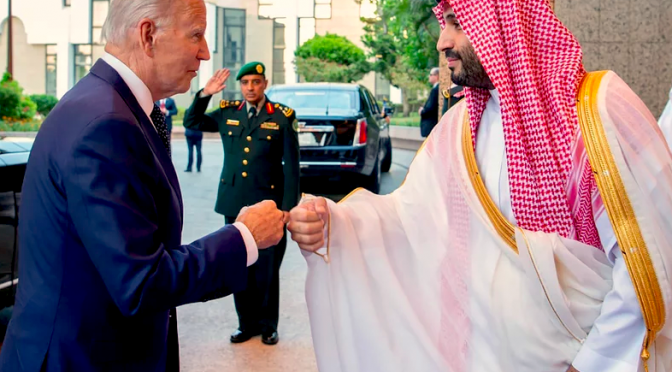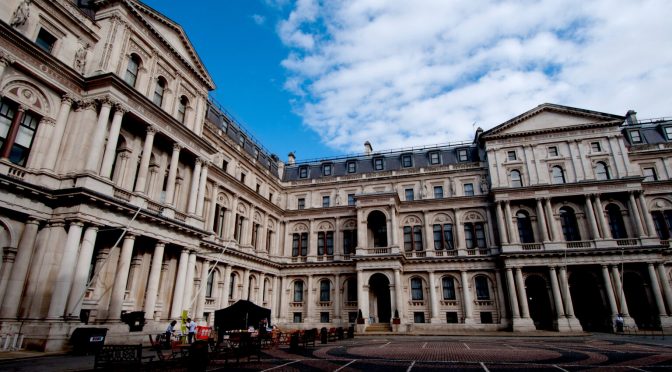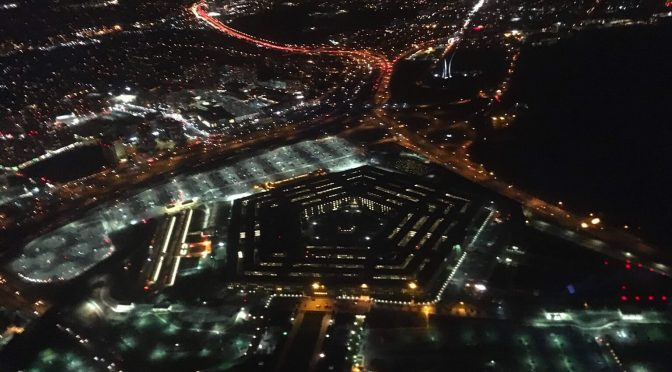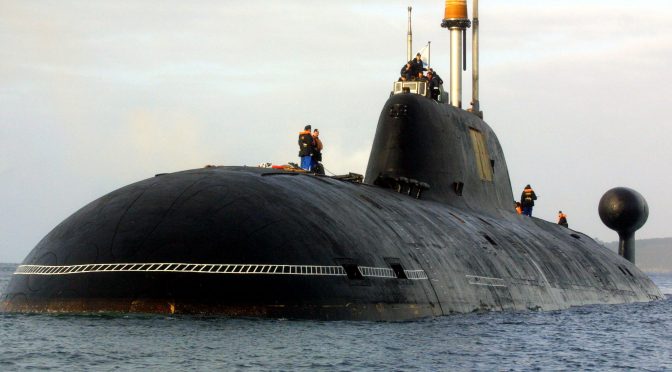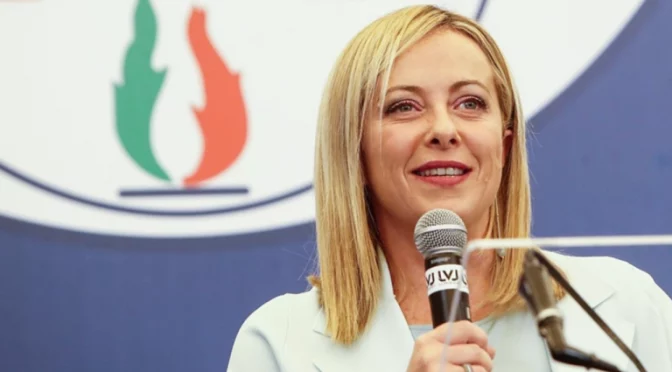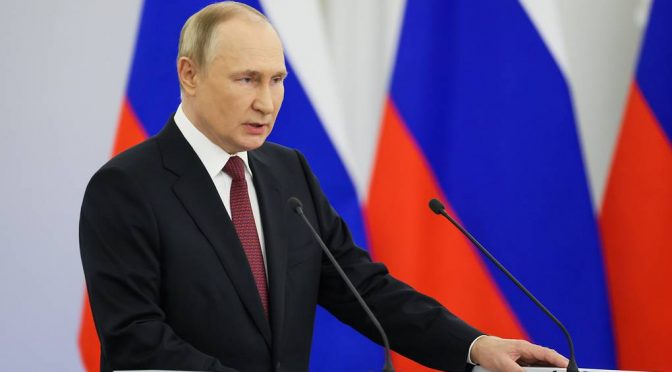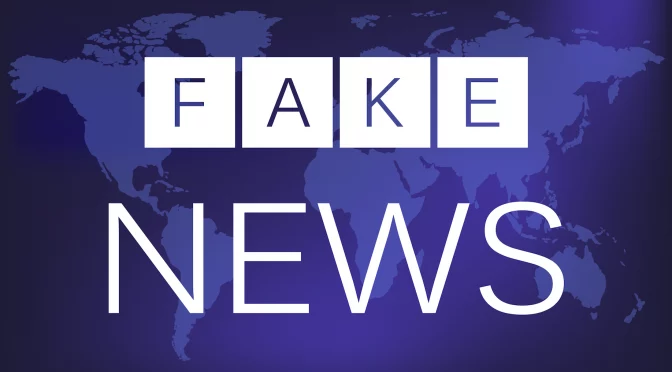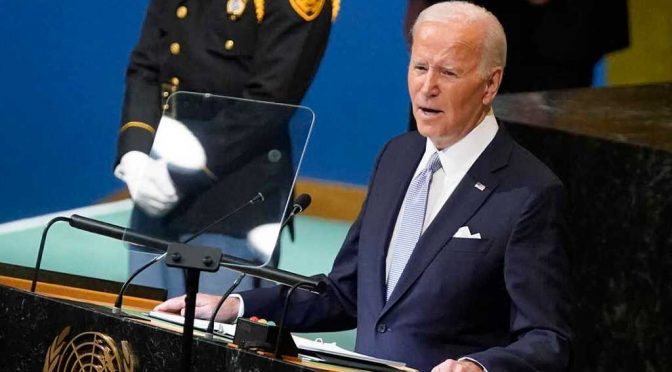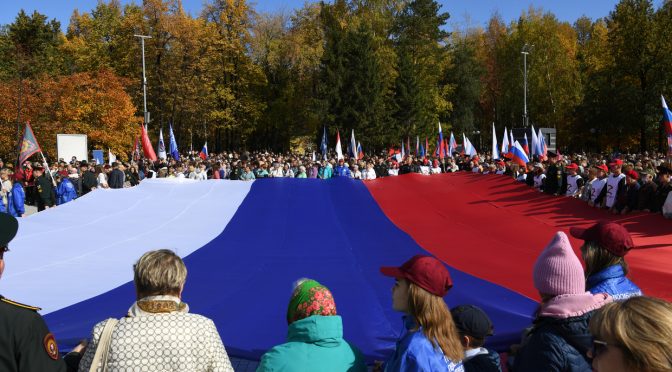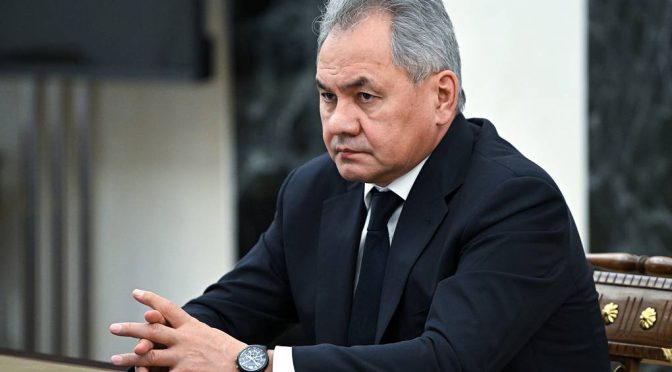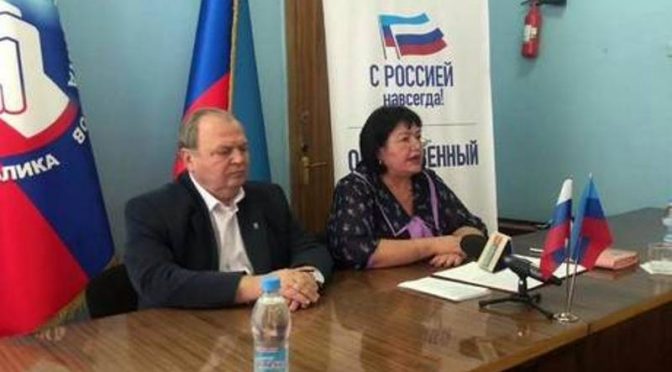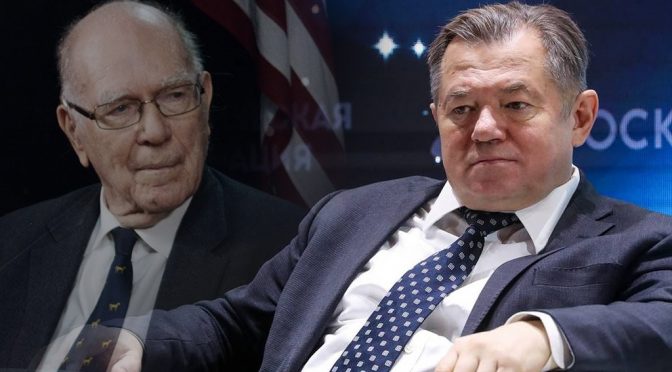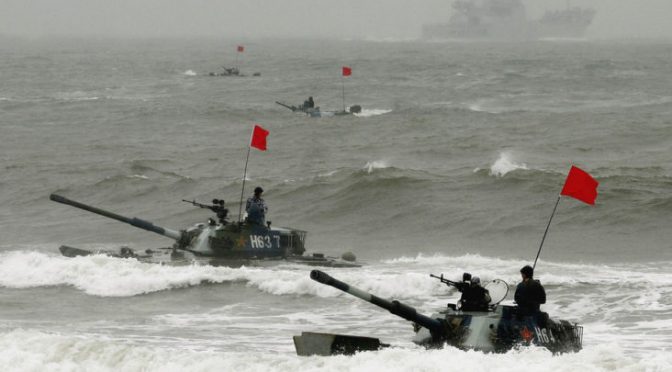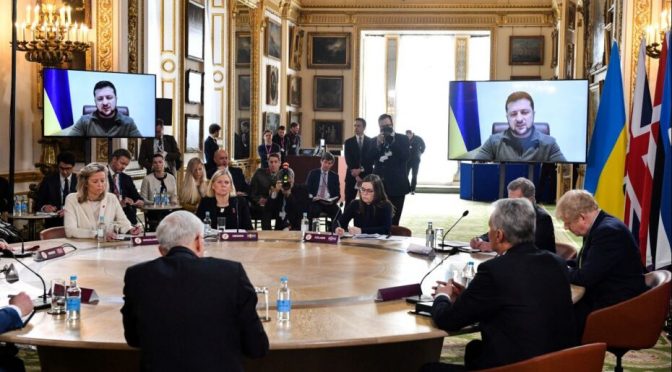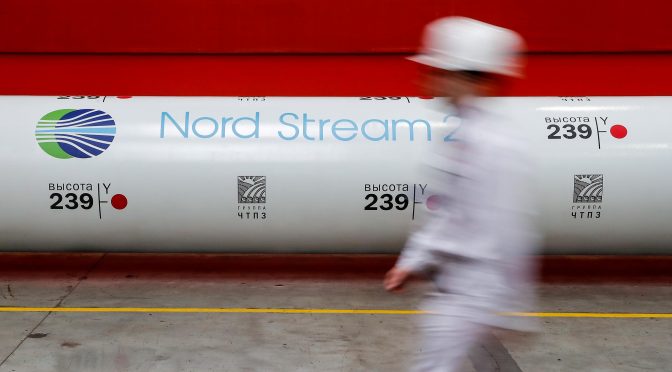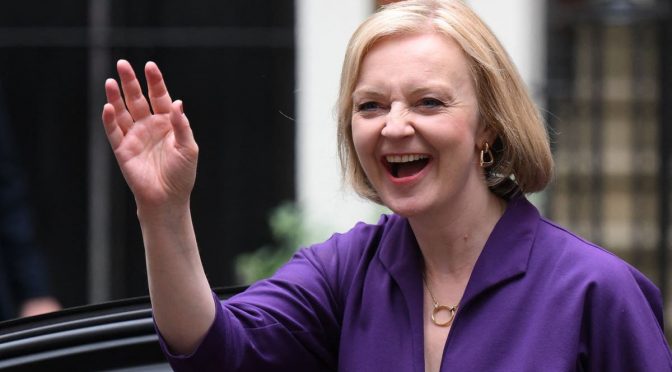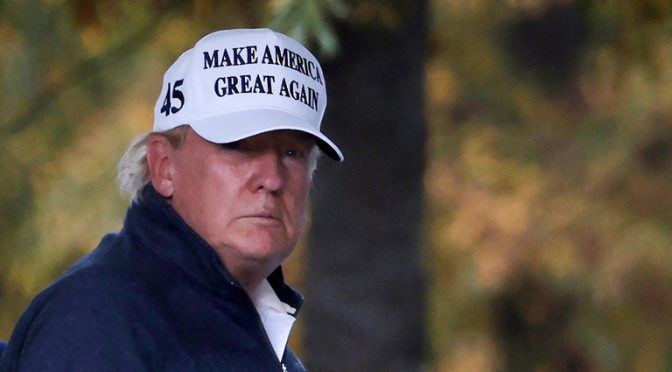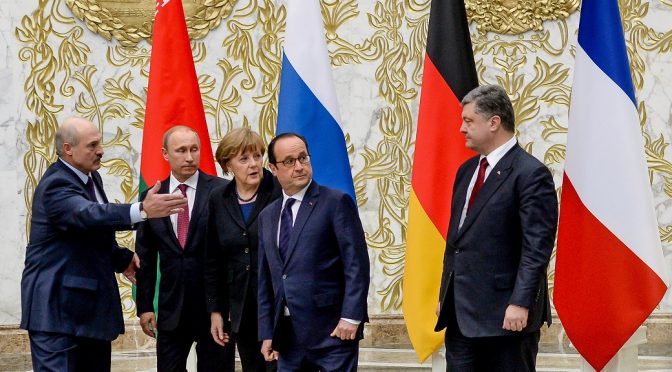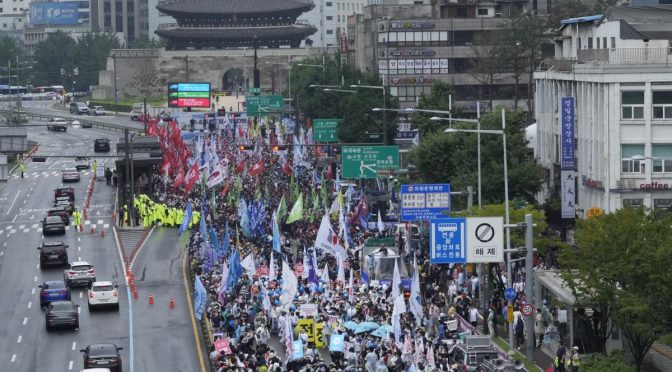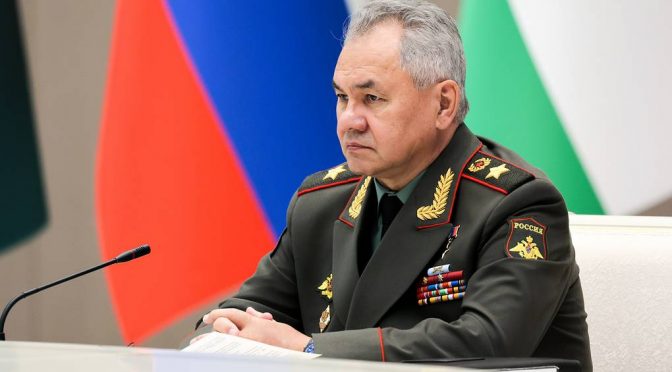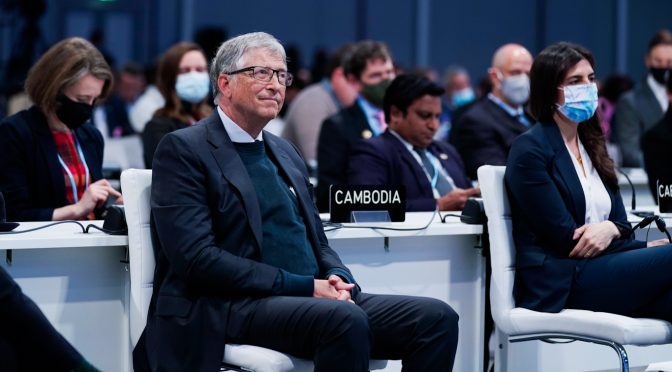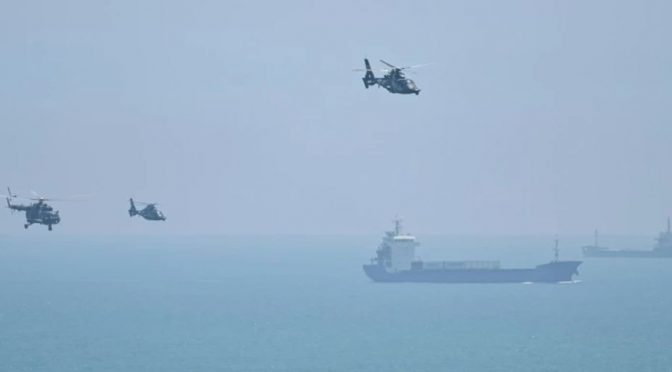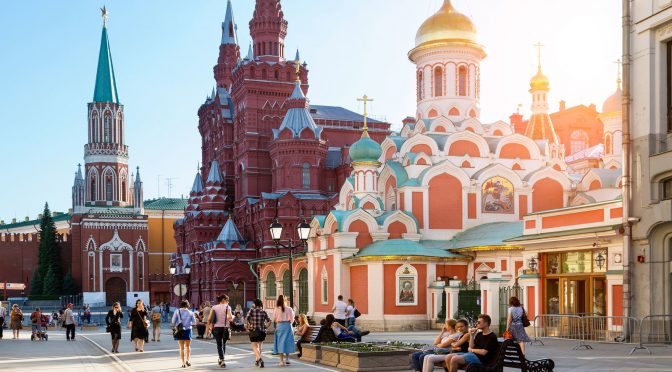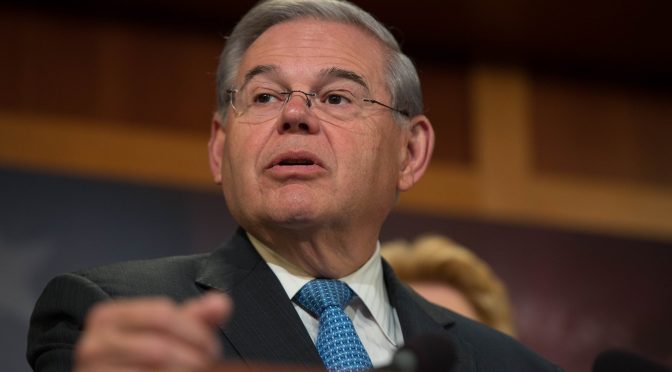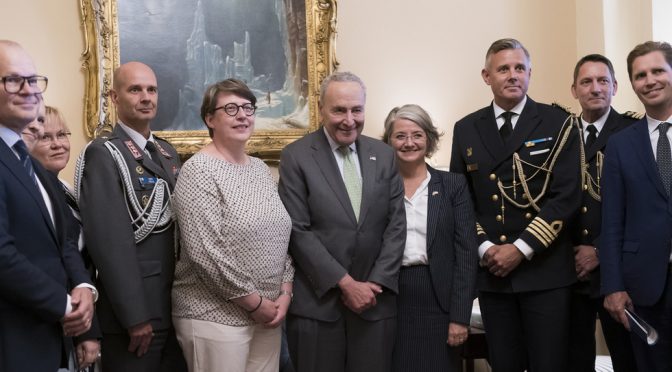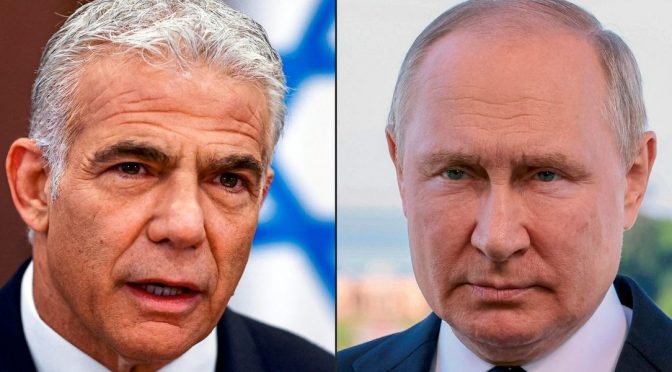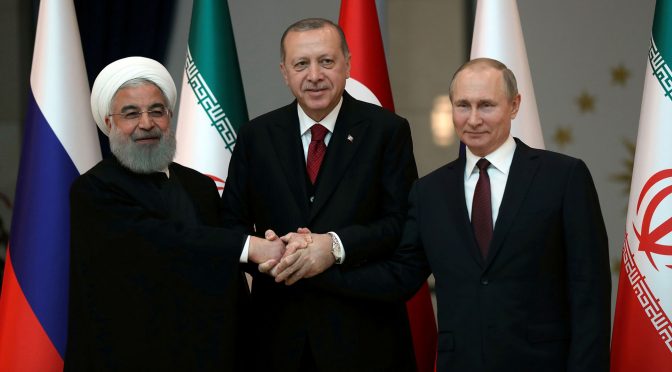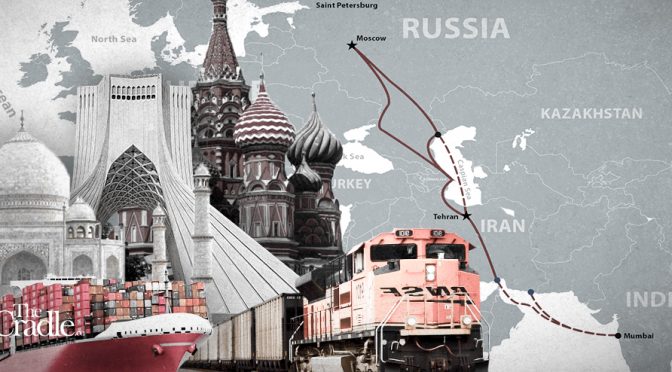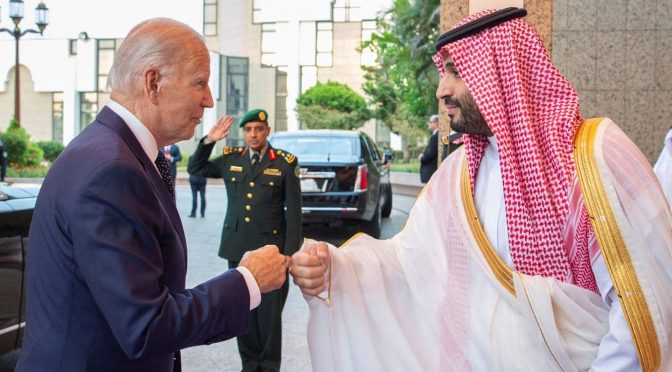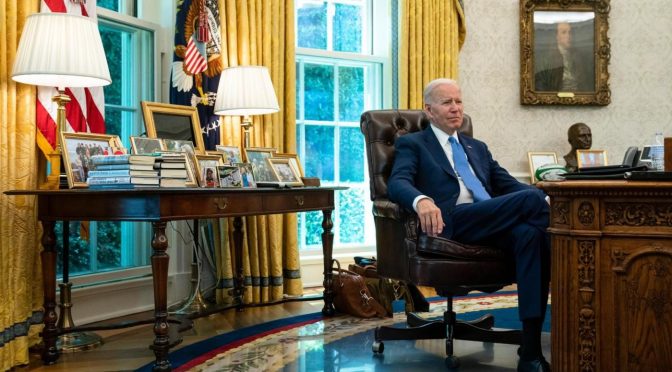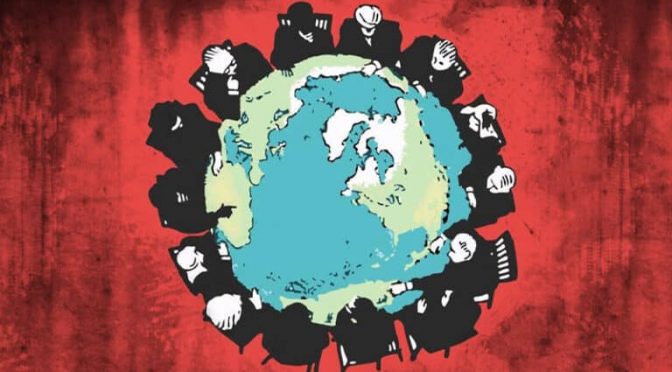Intelligence services worry about American economic warfare more than terrorism or the prospect of confrontation with Russia or China.
Continue reading French Elites Privately Fear the US, New Research Explains WhyCategory Archives: Geopolitics
UNGA Approves A Resolution to “Legalize International Robbery”
By a majority of votes, the UN General Assembly has adopted a resolution that would oblige Russia to compensate losses inflicted on Ukraine during the conflict and has recognized the need to create a special “international mechanism” that would allow it to do so.
Continue reading UNGA Approves A Resolution to “Legalize International Robbery”Billions of USD Laundered as Aid to Ukraine Laundered Back to Democrats via FTX Crypto Platform
Did you ever wonder where all those billions of dollars were going in Ukraine? Did you ever wonder why anyone was trusting the elites in US politics like the Bidens with billions in funds going to Ukraine?
Continue reading Billions of USD Laundered as Aid to Ukraine Laundered Back to Democrats via FTX Crypto PlatformComprehending the Underwhelming Performance of the GOP
There was supposed to be a red wave that would put the corrupt, entitled, arrogant Democrats in their place. The GOP was supposed to take the House by an emphatic margin and possibly the Senate, too.
Continue reading Comprehending the Underwhelming Performance of the GOPUS Voters Don’t Need Russian Trolls to Tell Them How Bad Things Are
Moscow’s ‘agents’ are being accused of sowing division over social media in the run-up to US midterms
Continue reading US Voters Don’t Need Russian Trolls to Tell Them How Bad Things AreThe Poverty of US Politics
Given the breadth and depth of deprivation in the richest country in the world, it should be surprising how little attention has been paid to the priorities of poor and low-income voters in the 2022 election season, writes Liz Theoharis.
Continue reading The Poverty of US PoliticsBerlin Goes to Beijing: The Real Deal
The Scholz caravan went to Beijing to lay down the preparatory steps for working out a peace deal with Russia, with China as privileged messenger.
Continue reading Berlin Goes to Beijing: The Real DealUK Think Tank Behind Truss’ Program Lives On
Sunak has installed several of the Institute of Economic Affairs’ biggest supporters in his cabinet and made one of its former staff members his chief spin doctor, writes Adam Bychawski.
Continue reading UK Think Tank Behind Truss’ Program Lives OnShocking Details of Zionist Biological Warfare Against Palestinians Exposed
Academics Benny Morris of Ben-Gurion University and Benjamin Z. Kedar of The Hebrew University of Jerusalem have produced an extraordinary paper based on a welter of archival material, exposing in disturbing detail the hitherto obfuscated dimensions of an operation by Zionist forces to use chemical and biological weapons against both invading Arab armies and local civilians during the 1948 war.
Continue reading Shocking Details of Zionist Biological Warfare Against Palestinians ExposedAttacks on Italy’s New Leader Put EU Disunity into Spotlight
Brussels stands ready to use its ‘tools’ should right-wing Georgia Meloni step out of line, but it’s far from the only element of discord plaguing the European Union.
Continue reading Attacks on Italy’s New Leader Put EU Disunity into SpotlightThe European Political Community : A Sword Striking Water
Since the beginning of the Russian military operation in Ukraine, international relations are blocked. No position changes. President Macron thought he could change the rules of the game by reshuffling the cards on the occasion of a meeting of the European enemy brothers, the European Political Community. But President Putin took him by surprise by changing the borders and the game itself.
Continue reading The European Political Community : A Sword Striking WaterWho Really Deserves a Peace Prize in Ukraine
In what was described as a harsh rebuke of Russia, the 2022 Nobel Peace Prize was awarded to the Ukrainian human rights organization Center for Civil Liberties, along with Belarusian human rights advocate Ales Bialiatski and the Russian human rights organization Memorial.
Continue reading Who Really Deserves a Peace Prize in UkraineOPEC’s Body Blow to Biden
The OPEC+ decision could change the security picture in West Asia more than anything since the 1979 Iranian Revolution.
Continue reading OPEC’s Body Blow to BidenBritish Intelligence Predicted Ukraine War 30 Years Ago
The U.K. anticipated a “serious confrontation between Russia and Ukraine” as far back as 1992, declassified files show, Phil Miller reports. One senior official even questioned whether Ukraine was “a real country.”
Continue reading British Intelligence Predicted Ukraine War 30 Years AgoUkraine Behind Terrorist Attack on Crimean Bridge
The Russian Security Service (FSB) has identified the suspects behind the deadly explosion.
Continue reading Ukraine Behind Terrorist Attack on Crimean BridgeStella Assange Slaps The Mustache Off John Bolton’s War Criminal Face
Stella Assange just delivered a beatdown on one of her husband’s persecutors that was so scorched-earth demolishing I feel like I need a cigarette after watching it.
Continue reading Stella Assange Slaps The Mustache Off John Bolton’s War Criminal FaceThe United States Declares War on Russia, Germany, Netherlands & France
While the international press treats the sabotage of the Nord Stream gas pipelines as a news item, we analyze it as an act of war against Germany and the European Union. Indeed, the three gas supply routes to Western Europe have been cut off simultaneously, while at the same time a new gas pipeline has been opened to Poland.
Continue reading The United States Declares War on Russia, Germany, Netherlands & FranceWe Are On the Eve of Destruction
We are, literally, on the eve of destruction. Now is the time for the kind of political maturity leaders rarely demonstrate. The onus is on Biden and Putin.
Continue reading We Are On the Eve of DestructionGiorgia on Our Mind
It’s tempting to interpret the Italian electoral results this past Sunday as voters merrily hurling a bowl of lush papardelle with wild boar ragu over the collective bland faces of the toxic unelected Euro-oligarchy sitting in Brussels.
Continue reading Giorgia on Our MindThe Beginning of the Collapse of Western Hegemony is Irreversible
Russia is fighting for its historical future and for a fair and free path now, so that dictatorship and despotism will be forever left behind in the past, Russian President Vladimir Putin said on Friday at a ceremony of accession of four new regions to Russia.
Continue reading The Beginning of the Collapse of Western Hegemony is IrreversibleEXPOSED: Covert Pro-Western Info Op
Declassified Australia’s Peter Cronau flags and analyzes a report by researchers at Stanford University and Graphika about a massive secret propaganda operation being run out of the U.S. The report, from late August, has been buried by the Western media.
Continue reading EXPOSED: Covert Pro-Western Info OpBiden’s Hypocritical UN Speech vs Russia
US President Joe Biden is living in an alternate reality completely devoid of facts and truth, as he put on full display for the entire world when he stood in front of the United Nations General Assembly days ago, to declare:
Continue reading Biden’s Hypocritical UN Speech vs RussiaRussians Gather to Show Support for Kherson, Zaporozhye, Donbass Referenda
People have gathered across Russia in support of the referendums which will determine if the Donbass republics and the Russian-controlled territories of southern Ukraine officially join Russia.
Continue reading Russians Gather to Show Support for Kherson, Zaporozhye, Donbass ReferendaRussia is At War Not Only with Ukraine, But With Collective West | MoD Shoigu
Russian Defense Minister stressed that Ukraine had almost run out of its own weapons of Soviet manufacture.
Continue reading Russia is At War Not Only with Ukraine, But With Collective West | MoD ShoiguSeveral Ukrainian Regions Want to Hold Referendum for Joining the Russian Federation
At least four Ukrainian territories have announced their plan to hold referendums for the purpose of formally ascending into the Russian Federation.
Continue reading Several Ukrainian Regions Want to Hold Referendum for Joining the Russian FederationThe Root Causes of the Current Unfolding Systemic Financial Collapse of the West
Sergey Glazyev’s thinking is rooted in an old and powerful intellectual current that derives from a strong tradition in Russia based upon state credit, national sovereignty, large-scale infrastructure, scientific progress, and win-win cooperation.
Continue reading The Root Causes of the Current Unfolding Systemic Financial Collapse of the WestUS Gov’t’s Modus Op: Create Problem, Blame Target Country, Impose Sanctions
Washington always justifies economic sanctions by evoking a military or security threat against either the US or any one of its allies. Then it actively works to prove the legitimacy of the threat – or to create the illusion thereof.
Continue reading US Gov’t’s Modus Op: Create Problem, Blame Target Country, Impose SanctionsThe EU Brought to Its Knees by The Straussians
A US grouping, constituted around the thought of the philosopher Leo Strauss, controls from now on both the Secretariat of Defense and the Secretariat of State. After having organized many wars since those of Yugoslavia, they imagined the one in Ukraine.
Continue reading The EU Brought to Its Knees by The StraussiansEEF Proves Russia Can’t Be Isolated and EU Moving Towards Third World Status
Russian President Vladimir Putin told the Eastern Economic Forum (EEF) in Vladivostok that there should be a multipolar world order that should not be based on the ‘diktat’ of a single nation, he said, referring to the United States.
Continue reading EEF Proves Russia Can’t Be Isolated and EU Moving Towards Third World StatusAsia’s Future Takes Shape in Vladivostok, the Russian Pacific
Sixty-eight countries gathered on Russia’s far eastern coast to listen to Moscow’s economic and political vision for the Asia-Pacific
Continue reading Asia’s Future Takes Shape in Vladivostok, the Russian PacificEurope’s Panicking Ahead of the Coming Winter
The absolute last thing that Poland wants right now is for everyone to remember how actively its leadership lobbied for exactly this outcome that’s since brought so much hardship to hundreds of millions of people, which is why it’s so important right now for activists to prioritize raising awareness of this “politically inconvenient” fact.
Continue reading Europe’s Panicking Ahead of the Coming WinterCasting Malevolent Shadows: Liz Truss Wins the Tory Leadership
10 Downing Street is set to be bathed in social media guff with the victory of Liz Truss. Confirmed as Boris Johnson’s successor, the new British Prime Minister won by a slimmer margin over rival contender Rishi Sunak than anticipated. Nonetheless, 81,326 votes to 60,399 was sufficient to guarantee her a secure margin – for the moment. (The turnout had been 83 per cent.)
Continue reading Casting Malevolent Shadows: Liz Truss Wins the Tory LeadershipInterpreting Putin’s Condolences Over Gorbachev’s Death
It’s not contradictory nor surprising for someone like President Putin to simultaneously acknowledge the urgent necessity of reforms during the late Soviet era, lament the ultra-disastrous geopolitical and humanitarian consequences of Gorbachev’s related implementation, and defend his resultant Great Power’s interests in line with international law, all while without ever pining for the restoration of that former communist superpower.
Continue reading Interpreting Putin’s Condolences Over Gorbachev’s DeathWhy Donald Trump Will Soon be Indicted
It gives me no joy to write this piece. Even a cursory review of the redacted version of the affidavit submitted in support of the government’s application for a search warrant at the home of former President Donald Trump reveals that he will soon be indicted by a federal grand jury for three crimes:
Continue reading Why Donald Trump Will Soon be IndictedThe Conflict in Ukraine is Precipitating the End of Western Domination
The Ukrainian conflict, presented as a Russian aggression, is only the implementation of the Security Council resolution 2202 of February 17, 2015. If France and Germany did not keep their commitments during the Minsk II Agreement, Russia prepared itself for seven years for the current confrontation.
Continue reading The Conflict in Ukraine is Precipitating the End of Western Domination“This Land is Not a U.S. Base” | South Korea Massive Protest Ignored by U.S. Media
In America these days, almost any information about North Korea, be it rumor, fake news, or just plain silly, becomes fodder for the mainstream media. From TMZ to The Guardian, reporters know there is an insatiable appetite for anything that puts Kim and his regime in a bad or crazy light.
Continue reading “This Land is Not a U.S. Base” | South Korea Massive Protest Ignored by U.S. MediaGeopolitical Tectonic Plates Shifting, 6 Months On
Six months after the start of the Special Military Operation (SMO) by Russia in Ukraine, the geopolitical tectonic plates of the 21st century have been dislocated at astonishing speed and depth – with immense historical repercussions already at hand. To paraphrase T.S. Eliot, this is the way the (new) world begins, not with a whimper but a bang.
Continue reading Geopolitical Tectonic Plates Shifting, 6 Months OnUS Plotting to Erode Southeast Asia’s Current Security Architecture
“Following Europe, a front is being put together to contain China. The so-called Taiwan problem is being deliberately worsened, and territorial disputes in the South China and East China Seas are being fomented,” the minister specified.
TASHKENT, August 24. /TASS/. In order to ensure its global hegemony, the US is trying to dismantle the established security architecture in Southeast Asia, Russian Defense Minister Sergey Shoigu said at a meeting of SCO defense ministers on Wednesday.
“As for the southern flank of our organization – Southeast Asia – then there we are also witnessing a set of complex transnational contradictions. Hot spots of tension are being shaped with a hard-to-predict scenario of unfolding developments. In order to ensure [its] global hegemony, Washington is attempting to break up the regional security architecture,” the top Russian military official said.
To this end, he noted, military-political blocs are being created such as QUAD and AUKUS.
“The countries in the region are drawn into cooperation with NATO. Following Europe, a front is being put together to contain China. The so-called Taiwan problem is being deliberately worsened, and territorial disputes in the South China and East China Seas are being fomented,” he specified.
According to Shoigu, “security in this region can only be ensured by joint efforts keeping in mind the interests of all states with the central role of ASEAN and other multilateral mechanisms of interaction”.
BILL GATES HAS GIVEN $319 MILLION TO MEDIA OUTLETS, DOCUMENTS REVEAL
SEATTLE — Up until his recent messy divorce, Bill Gates enjoyed something of a free pass in corporate media. Generally presented as a kindly nerd who wants to save the world, the Microsoft co-founder was even unironically christened “Saint Bill” by The Guardian.
Continue reading BILL GATES HAS GIVEN $319 MILLION TO MEDIA OUTLETS, DOCUMENTS REVEALThe Only Thing Keeping U.S. and China from War is Getting Thinner
American relations with China in regards to Taiwan have been dictated by years of ambiguous statements and commitments. Now this rhetoric is breaking down and armed conflict seems closer than ever – but is Washington ready to fight over Taiwan, or capable of winning?
Continue reading The Only Thing Keeping U.S. and China from War is Getting ThinnerThe Western Strategy to Dismantle the Russian Federation
Renewing the strategies of Germany during the First World War and of the United States and the Ukrainian integral nationalists during the Cold War, the Westerners have just created a Forum of the free peoples of Russia. The aim is to prolong the break-up of the USSR, to create separatist movements and, ultimately, to proclaim the independence of twenty regions of the country.
Continue reading The Western Strategy to Dismantle the Russian FederationEscalation of Hybrid War Against El Salvador: US Compares Prez Nayib Bukele to Hitler, Covert Support of Terrorist Gangs
The Hybrid War waged by the US on multiple fronts against El Salvador had escalated by November 2018 as punishment for establishing relations with China, accepting that Taiwan is only a province.
Continue reading Escalation of Hybrid War Against El Salvador: US Compares Prez Nayib Bukele to Hitler, Covert Support of Terrorist GangsRussia and Turkey Reach Deal to Ditch Dollar in Trade
Ankara agrees to pay for some of Russian natural gas supplies in rubles. Russia and Turkey have reached an agreement in principle to switch some of the payments for Russian natural gas to rubles as part of deepening trade ties between the two countries, the Turkish energy ministry announced on Thursday.
Continue reading Russia and Turkey Reach Deal to Ditch Dollar in TradeUS-China Chip War Continues: Geopolitics and the Semiconductor Industry
As the tension between the US and China mounts as a fall-out of Nancy Pelosi’s provocative Taiwan visit, the technology war between the two is also taking a new turn. Both houses in the US Congress have approved a $280 billion plan – The Chips and Science Act – to boost US chip manufacturing.
Continue reading US-China Chip War Continues: Geopolitics and the Semiconductor IndustryUS Senate Approves NATO Expansion
Senators overwhelmingly back Finland and Sweden’s accession, while shooting down an amendment seeking to limit NATO’s war powers.
Continue reading US Senate Approves NATO ExpansionWith Eye on the CIA, Moscow Cracks the Whip at Israel
The Jewish Agency is Israel’s life source and the Kremlin shut it down this month. The fallout may be a measurable schism between Moscow and Tel Aviv, in which the latter has a lot to lose.
Continue reading With Eye on the CIA, Moscow Cracks the Whip at IsraelMultipolar “Iran-Russia-Turkey Troika” Overshadows “Unipolar Joe Biden” in West Asia
The presidents of Russia, Iran, and Turkey convened to discuss critical issues pertaining to West Asia, with the illegal US occupation of Syria a key talking point.
Continue reading Multipolar “Iran-Russia-Turkey Troika” Overshadows “Unipolar Joe Biden” in West AsiaIndia-Russia-Iran: Eurasia’s New Transportation Powerhouses
No longer just an ‘alternative route’ on a drawing board, the International North South Transportation Corridor (INSTC) is paying dividends in a time of global crisis. And Moscow, Tehran and New Delhi are now leading players in the Eurasian competition for transportation routes.
Tectonic shifts continue to rage through the world system with nation-states quickly recognizing that the “great game” as it has been played since the establishment of the Bretton Woods monetary system in the wake of the second World War, is over.
But empires never disappear without a fight, and the Anglo-American one is no exception, overplaying its hand, threatening and bluffing its way, right to the end.
End of an order
It seems no matter how many sanctions the west imposes on Russia, the victims most affected are western civilians. Indeed, the severity of this political blunder is such that the nations of the trans-Atlantic are heading towards the greatest self-induced food and energy crisis in history.
While the representatives of the “liberal rules-based international order” continue on their trajectory to crush all nations that refuse to play by those rules, a much saner paradigm has come to light in recent months that promises to transform the global order entirely.
The multipolar solution
Here we see the alternative security-financial order which has arisen in the form of the Greater Eurasian Partnership. As recently as 30 June at the 10th St Petersburg International Legal Forum, Russian President Vladimir Putin described this emerging new multipolar order as:
“A multipolar system of international relations is now being formed. It is an irreversible process; it is happening before our eyes and is objective in nature. The position of Russia and many other countries is that this democratic, more just world order should be built on the basis of mutual respect and trust, and, of course, on the generally accepted principles of international law and the UN Charter.”
Since the inevitable cancellation of western trade with Russia after the Ukraine conflict erupted in February, Putin has increasingly made clear that the strategic re-orientation of Moscow’s economic ties from east to west had to make a dramatically new emphasis on north to south and north to east relations not only for Russia’s survival, but for the survival of all Eurasia.
Among the top strategic focuses of this re-orientation is the long overdue International North South Transportation Corridor (INSTC).
On this game-changing mega-project, Putin said last month during the plenary session of the 25th St Petersburg International Economic Forum:
“To help companies from other countries develop logistical and cooperation ties, we are working to improve transport corridors, increase the capacity of railways, trans-shipment capacity at ports in the Arctic, and in the eastern, southern and other parts of the country, including in the Azov-Black Sea and Caspian basins – they will become the most important section of the North-South Corridor, which will provide stable connectivity with the Middle East and Southern Asia. We expect freight traffic along this route to begin growing steadily in the near future.”
The INSTC’s Phoenix Moment
Until recently, the primary trade route for goods passing from India to Europe has been the maritime shipping corridor passing through the Bab El-Mandeb Strait linking the Gulf of Aden to the Red Sea, via the highly bottlenecked Suez Canal, through the Mediterranean and onward to Europe via ports and rail/road corridors.
Following this western-dominated route, average transit times take about 40 days to reach ports of Northern Europe or Russia. Geopolitical realities of the western technocratic obsession with global governance have made this NATO-controlled route more than a little unreliable.
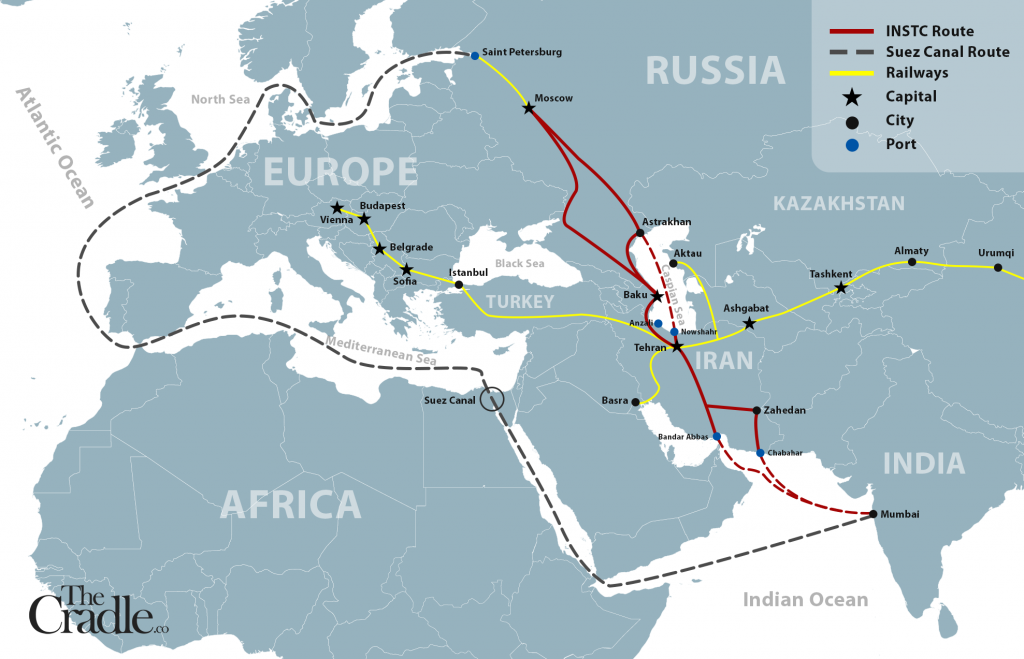
Despite being far from complete, goods moving across the INSTC from India to Russia have already finished their journey 14 days sooner than their Suez-bound counterparts while also seeing a whopping 30 percent reduction in total shipping costs.
These figures are expected to fall further as the project progresses. Most importantly, the INSTC would also provide a new basis for international win-win cooperation much more in harmony with the spirit of geo-economics unveiled by China’s Belt and Road Initiative (BRI) in 2013.
Cooperation not competition
Originally agreed upon by Russia, Iran and India in September 2000, the INSTC only began moving in earnest in 2002 – albeit much more slowly than its architects had hoped.
This 7,200 km multimodal megaproject involves integrating several Eurasian nations directly or indirectly with rail, roads and shipping corridors into a united and tight-knit web of interdependency. Along each artery, opportunities to build energy projects, mining, and high tech special economic zones (SEZs) will abound giving each participating nation the economic power to lift their people out of poverty, increase their stability and their national power to chart their own destinies.
Beyond the founding three nations, the other 10 states who have signed onto this project over the years include Armenia, Georgia, Turkey, Azerbaijan, Kazakhstan, Belarus, Tajikistan, Kyrgyzstan, Oman, Syria and even Ukraine (although this last member may not remain on board for long). In recent months, India has officially invited Afghanistan and Uzbekistan to join too.
While western think tanks and geopolitical analysts attempt to frame the INSTC as an opponent to China’s BRI, the reality is that both systems are extremely synergistic on multiple levels.
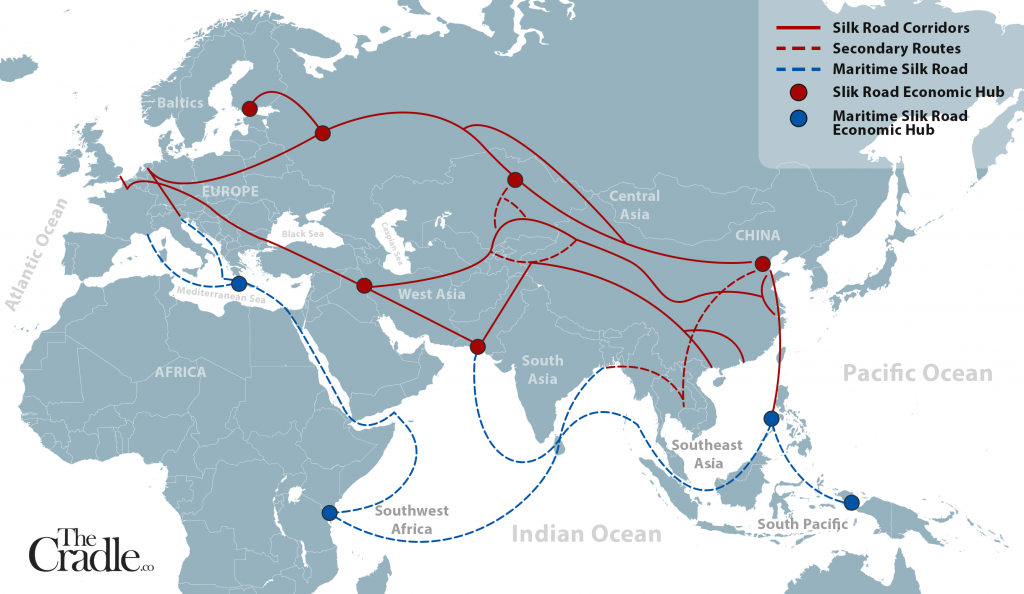
Unlike the west’s speculation-driven bubble economy, both the BRI and INSTC define economic value and self-interest around improving the productivity and living standards of the real economy. While short term thinking predominates in the myopic London-Wall Street paradigm, the BRI and INSTC investment strategies are driven by long-term thinking and mutual self-interest.
It is no small irony that such policies once animated the best traditions of the west before the rot of unipolar thinking took over and the west lost its moral compass.
An integrated alternative
The INSTC’s two major bookends are the productive zone of Mumbai in India’s Southeast region of Gujarat and the northern-most Arctic port of Lavna in Russia’s Kola Peninsula of Murmansk.
This is not only the first port constructed by Russia in decades, but when completed, will be one of the world’s largest commercial ports with an expected capacity to process 80 million tons of goods by 2030.
The Lavna Port is an integral part of Russia’s Arctic and Far East Development vision and is a central piece to Russia’s current Comprehensive Plan for Modernization and Expansion of Main Infrastructure and its Northern Sea Route which is expected to see a five-fold increase of Arctic freight traffic over the coming years. These projects are integrally linked to China’s Polar Silk Road.
Between these bookends, the INSTC moves freight from India into Iran’s Port of Bandar Abbas where it is loaded onto double-tracked rail to the Iranian city of Bafq and then to Tehran before coming to the Anzali Port on the southern Caspian Sea.
‘Be like water’
Because the INSTC is based on a flexible design concept capable of adapting to a changing geopolitical environment (very much like the BRI), there are a multitude of connecting lines that branch off the main North-South artery before goods make it to the Caspian Sea.
These include an eastern and western corridor branching off from the city of Bafq towards Turkey and thence Europe via the Bosporus and also eastward from Tehran to Turkmenistan, Uzbekistan, Kazakhstan and thereafter into Urumqi in China.
Railway is still relevant
From the Anzali Port in the north of Iran, goods may travel by the Caspian Sea towards Russia’s Astrakhan Port where it is then loaded onto trains and trucks for transport to Moscow, St Petersburg and Murmansk. Inversely goods may also travel over land to Azerbaijan where the 35 km Iran Rasht-Caspian railway is currently under construction with 11 km completed as of this writing.
Once completed, the line will connect the Port of Anzali with Azerbaijan’s Baku, offering goods a chance to either continue onwards to Russia or westward toward Europe. A Tehran-Baku rail route already exists.
Additionally, Azerbaijan and Iran are currently collaborating on a vast $2 billion rail line connecting the 175 km Qazvin-Rasht railway which began operations in 2019 with a strategic rail line connecting Iran’s Rasht port on the Caspian to the Bandar Abbas Complex in the south (to be completed in 2025). Iran’s Minister of Roads and Urban Development Rostam Ghasemi described this project in January 2022 saying:
“Iran’s goal is to connect to the Caucasus, Russia, and European countries. For this purpose, the construction of the Rasht-Astara railway is in the spotlight. During the Iranian president’s visit to Russia, discussions were conducted in this regard, and construction of the railway line is expected to begin soon with the allocation of needed funds.”
In recent months, India’s Prime Minister Narendra Modi has lobbied to incorporate the joint Iran-India built Chabahar Port into the INSTC which will likely occur since another 628 km rail line from the port to the Iranian city of Zahedan is currently under construction.
Once completed, goods will easily move onward to the city of Bafq. While some critics have suggested that the Chabahar Port is antagonistic to Pakistan’s Gwadar Port, Iranian officials have constantly referred to it as Chabahar’s twin sister.
Since 2014, a vast rail and transportation complex has grown around the co-signers of the Ashkabat Agreement (launched in 2011 and upgraded several times over the past decade). These rail networks include the 917.5 km Iran-Turkmenistan-Kazakhstan route launched in 2014, and Turkmenistan-Afghanistan-Tajikistan rail/energy project launched in 2016 which is currently seeing extensions that could easily go into Pakistan.
In December 2021, the 6540 km Islamabad to Istanbul rail line (via Iran) recommenced operations after a decade of inaction. This route cuts the conventional sea transit route time of 21 days by half. Discussions are already underway to extend the line from Pakistan into China’s Xinjiang Province linking the INSTC ever more closely into the BRI on yet another front.

Finally, June 2022 saw the long-awaited unveiling of the 6108 km Kazakhstan-Iran-Turkey rail line which provides an alternative route to the under-developed Middle Corridor. Celebrating the inaugural 12 day voyage of cargo, Kazakhstan’s President Kasym-Jomart Tokayev stated: “Today, we welcomed the container train, which left Kazakhstan a week ago. Then it will go to Turkey. This is a significant event, given the difficult geopolitical conditions.”
Despite the fact that the INSTC is over 20 years old, global geopolitical dynamics, regime change wars, and ongoing economic warfare against Iran, Syria and other US target states did much to harm the sort of stable geopolitical climate needed to emit large scale credit requisite for long term projects like this to succeed.
Caspian Summit Security breakthroughs
As proof that necessity truly is the mother of invention, the systemic meltdown of the entire post-WW2 edifice has forced reality to take precedence over the smaller-minded concerns that kept the diverse nations of Sir Halford John Mackinder’s “World Island” from cooperating. Among these points of endless conflict and stagnation which has upset great economic potential over the course of three decades, the Caspian zone stands out.
It is in this oil and natural gas rich hub that the five Caspian littoral states (Russia, Iran, Azerbaijan, Kazakhstan and Turkmenistan) have found a power to break through on multi-level security, economic and diplomatic agreements throughout the June 29-30, 2022 Sixth Caspian Summit in Ashgabat, Turkmenistan.
This summit placed a high priority on the INSTC with the region becoming both a north-south and east-west transportation hub. Most importantly, the leaders of the five littoral states made their final communique center around the region’s security since it is obvious that divide-to-conquer tactics will be deployed using every tool in the asymmetrical warfare tool basket going forward.
Chief among the agreed-upon principles were indivisible security, mutual cooperation, military cooperation, respect for national sovereignty, and non-interference. Most importantly, the banning of foreign military from the land and waters of the Caspian states was firmly established.
While no final agreement was reached over the disputed ownership of resources within the base of the Caspian, the stage was set for harmonization of partner states’ security doctrines, a healthy environment was established for the second Caspian Economic Summit which will take place in Autumn of this year and which will hopefully resolve many of the disputes pertaining to Caspian resource ownership.
Although geopolitical storms continue to intensify, it is increasingly clear that only the multipolar ship of state has demonstrated the competence to navigate the hostile seas, while the sinking unipolar ship of fools has a ruptured hull held together by little more than chewing gum and heavy doses of delusion.
Saudi Arabia Boosts Russian Oil Imports, Frees Up its Supply for the West
US President Biden’s visit to Saudi recently was never about Khashoggi, but about how much oil Saudi Arabia can supply US oil companies for profit. It turns out, the House of Salman only needs to import more Russian oil to augment its own production that was hampered from multiple Yemen attacks on its refineries earlier on.
Continue reading Saudi Arabia Boosts Russian Oil Imports, Frees Up its Supply for the WestRussia and China Haven’t Even Started to Ratchet Up the Pain Dial Yet
The Suicide Spectacular Summer Show, currently on screen across Europe, proceeds in full regalia, much to the astonishment of virtually the whole Global South: a trashy, woke Gotterdammerung remake, with Wagnerian grandeur replaced by twerking.
Continue reading Russia and China Haven’t Even Started to Ratchet Up the Pain Dial YetThree More Countries Set to Join BRICS
The kingdom of Saudi Arabia, along with Turkey and Egypt, may apply next year, the BRICS Forum president told Russian media.
Continue reading Three More Countries Set to Join BRICSThe Great Reset & Its ‘Final Solution’ for Useless People
The idea of the Great Reset derives from the New World Order which is still alive in the minds of the establishment or who we can call the globalists from people like Henry Kissinger to the current US president, Joe Biden.
Continue reading The Great Reset & Its ‘Final Solution’ for Useless People
